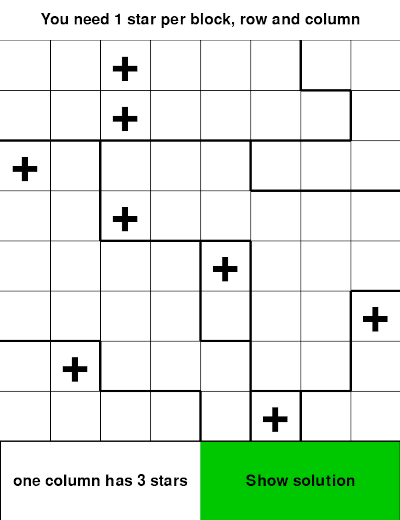Projects
These are the projects I’ve been working on in the last years, feedback is always appreciated!
WiMoVE: Bachelor’s project and Bachelor’s thesis
In my Bachelor’s project, Aaron Schlitt, Alexander Sohn, Lina Wilske and I developed WiMoVE, a Wi-Fi architecture that uses Layer 2 (L2) overlay networks on top of a Layer 3 (L3) network to reduce broadcast transmissions while providing users with unfiltered L2 services.
Further information on the project can be found here.
My Bachelor’s thesis looked at extending the architecture, see here.
informatiCup 2023
With Alexander Sohn and Jacob Schäfer, I participated in the informatiCup 2023, a competition held by the German Informatics Society. The competition was about Profit!, a type of Facility Layout Problem. We developed a theoretical approach using a customized genetic algorithm. We then implemented and evaluated it during numerous test runs. You can find our report and implementation here.
Hack The Box University CTF 2022
As member of team Platypwnies, I participated in the HTB University CTF 2023 where we reached first place! You can find us in an article on hpi.de.
European Cybersecurity Challenge
In Vienna, there were two days of CTF competition: One day of jeopardy and one day of attack-defense. Since I hadn’t had any big successes in the attack-defense format, the second day was especially interesting to me. I was therefore able to learn a lot about what it takes to be successful in an attack-defense CTF.
I also set myself the goal to get more into Windows security, especially Active Directory, since this was the second CTF where I worked on an Active Directory challenge and felt completely lost. Unfortunately, I had to depart early and I wasn’t able to spend a lot of time in the city or with the other teams.
Cybersecurity Challenge Germany
In 2022, I participated in the Cybersecurity Challenge Germany, a Capture-The-Flag security competition where I placed fourth in the junior category. I was therefore invited to the finals in Munich. There, I had a great time while connecting to people with a similar interest in cybersecurity, some of which with a lot of CTF experience. Apart from the CTF, we also had to present one challenge in front of a non-technical audience. For our team, I held the presentation on the challenge Schrödinger’s Encoding which was about hidden unicode characters in open-source source code in the context of supply chain attacks.
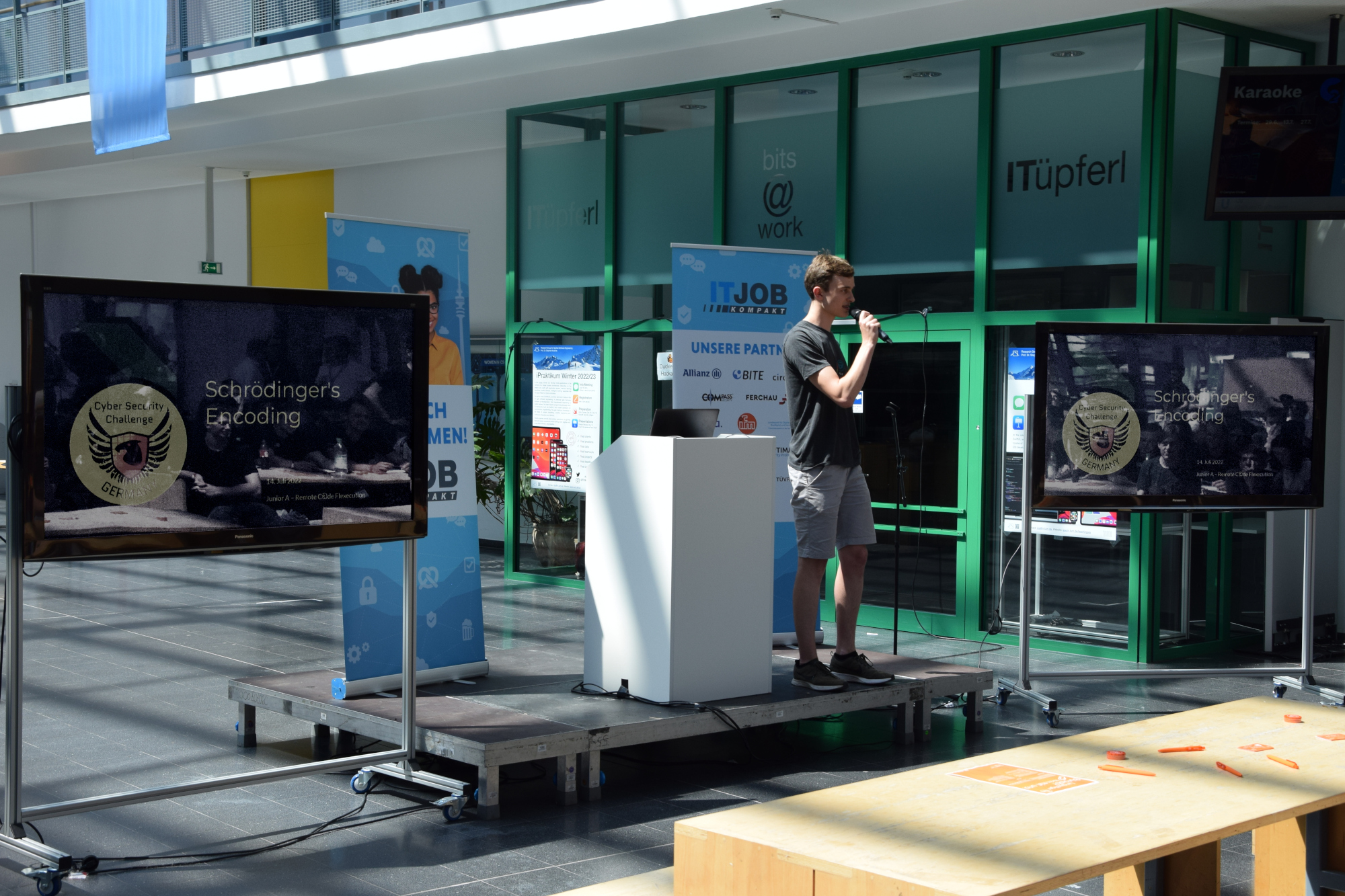
Our junior team Remote Cඞde Flexecution reached first place among all participating teams. Afterwards, I was selected for the German national team for the European Cybersecurity Challenge in Vienna.
ROP-Simulator
For my presentation on Return-Oriented Programming (ROP) in the course CTF: Cops and Robbers, I created a ROP simulator in C. The program prepares gadgets, prints out helpful addresses and prompts the user to type in their ROP chain. This makes it easier to learn about ROP as it takes away some failure modes of entry-level CTF challenges.
Solid
As part of a lecture on distributed systems, we worked on Solid, a live polling platform. The production instance is reachable at https://app.solidpolls.de.
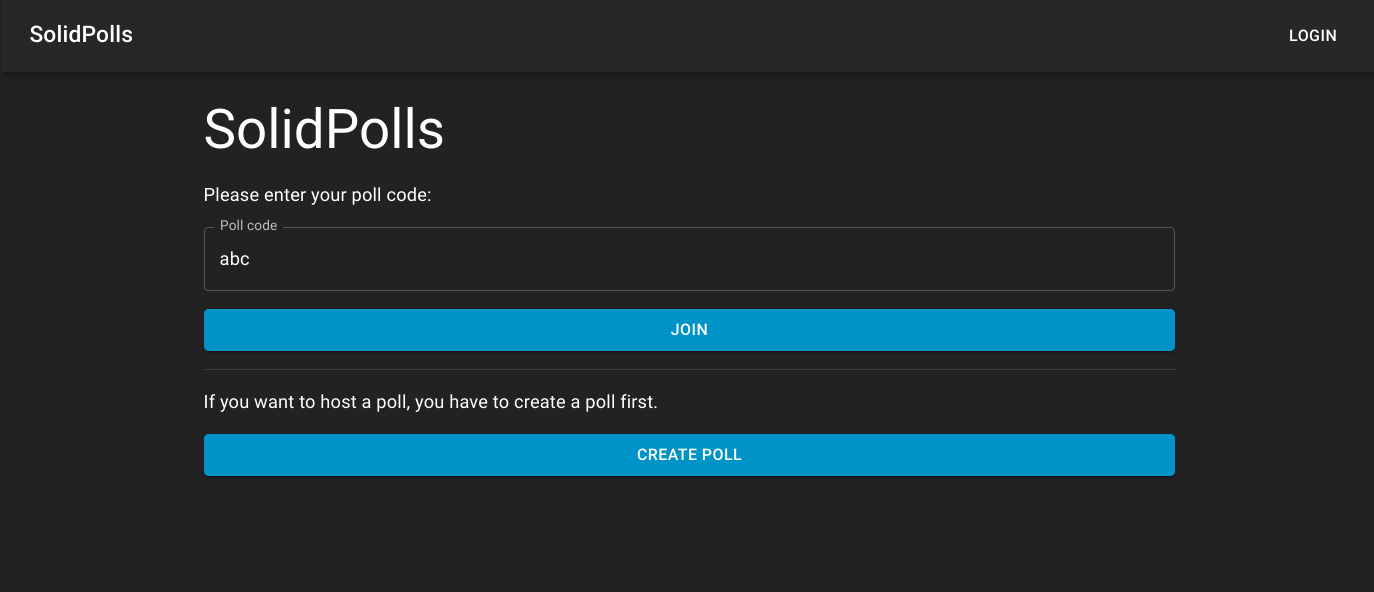
TelegramClient
As part of a lecture on software engineering, we worked on TelegramClient, a Telegram front-end written in Squeak/Smalltalk. At the start of the semester, we received a legacy project with a nice architecture and good test coverage. Our focus were agile methodologies, we used extreme programming. We added several features to the software while keeping the codebase readable and modular.
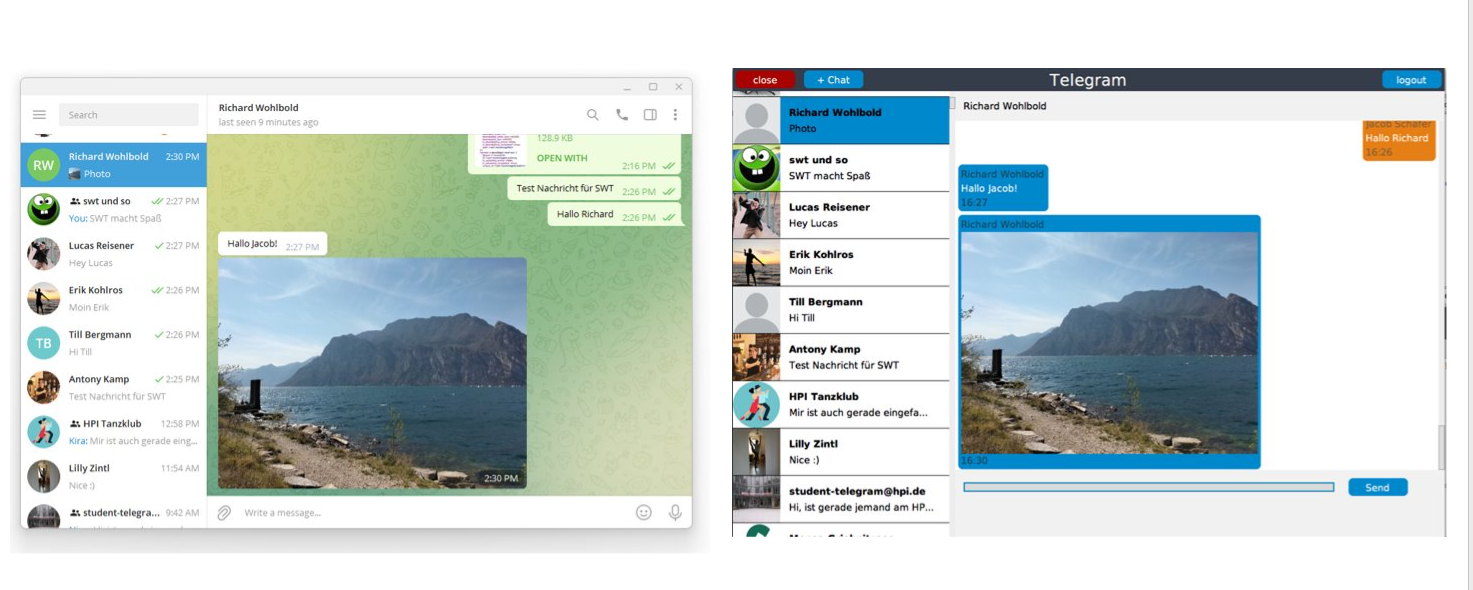
Hack The Box University CTF 2021
At my institute’s Cybersecurity Club, we participated in the qualifiers and finals of Hack The Box University 2021 where we reached first place. There were lots of great challenges. Writeups are avaible on our club homepage.
Digital Innovation Challenge 2021
The Digital Innovation Challenge is a 24-hour event hosed by the German Informatics Society. In the 2021 challenge, the theme was sustainability: In 24 hours, we should make a piece of software that is able to contribute to the Sustainable Development Goals defined by the United Nations.
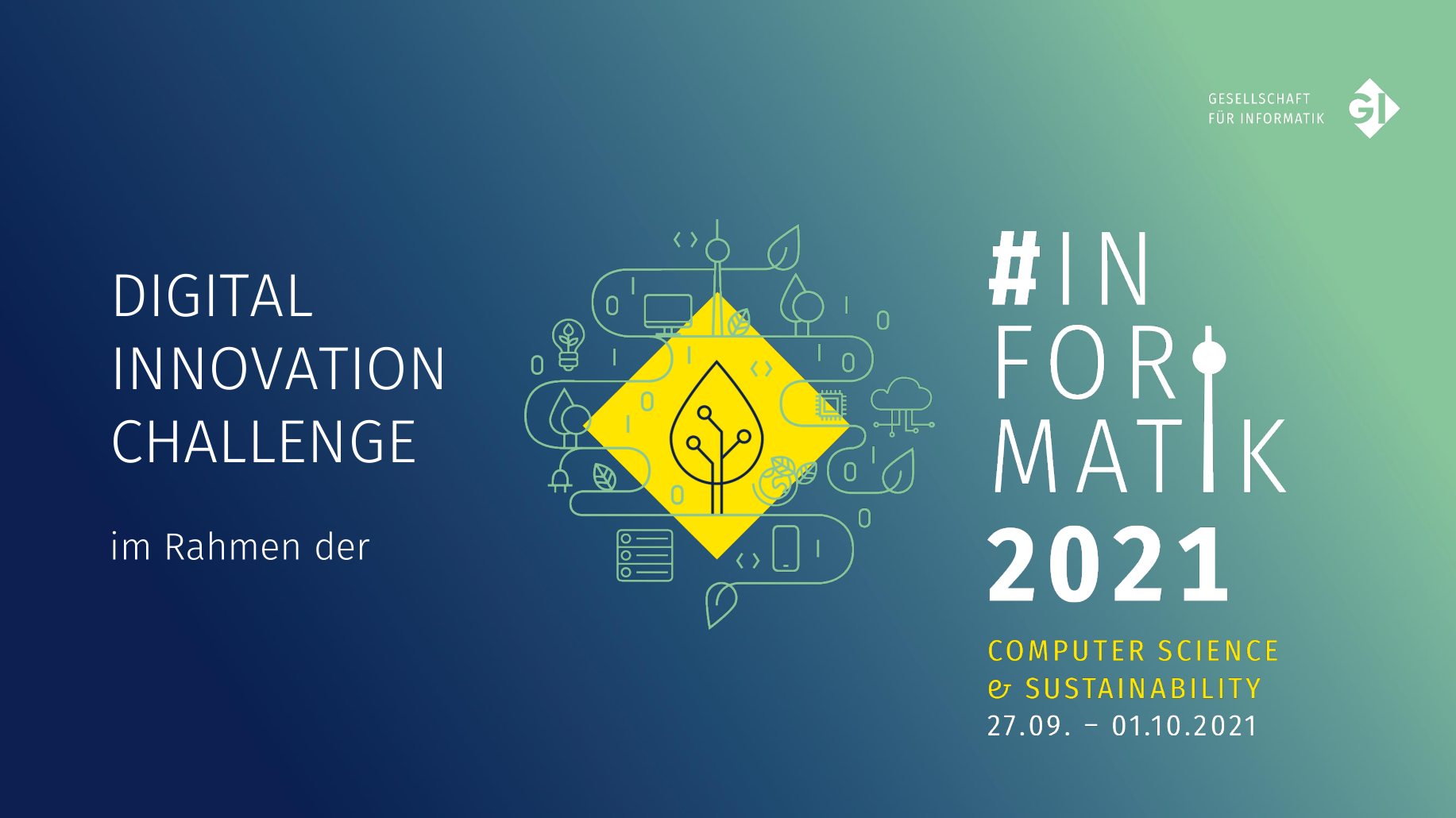
Together with three peers, we took a look at the problem of impulse online purchases: Comsumption in general accounts for a significant share of the world’s CO2 emissions. Impulse purchases often create little value for the consumer in the long term while still having to be manufactured and shipped. Therefore, we created the browser extension ByeBuy. The premise is simple: By delaying purchases by a few days, users think more about whether they actually need the item in question. To accomplish this, ByeBuy creates a button located right next to the buy button that puts the item on a list and asks you after a couple of days if you still want to buy the item. This is the extension in action:
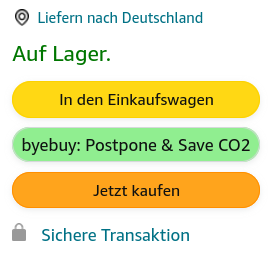
With ByeBuy, we placed first among all participating teams! You can check out the source code and a more detailed description in German on GitHub at https://github.com/Team42-DIC/byebuy.
informatiCup 2021

The informatiCup is a competition held by the German Informatics Society. In 2021, the goal was to build a program that could play the game spe_ed:
I laid out the technical details as well as our key takeaways in an entire blog post: Participating at informatiCup 2021.
iQuHACK 2021
At iQuHACK 2021 (interdisciplinary Quantum HACKathon), we solved the game Star Battle / Two Not Touch using D-Wave’s Leap Hybrid Solver. I posted about the details in the following post: Going Quantum.
